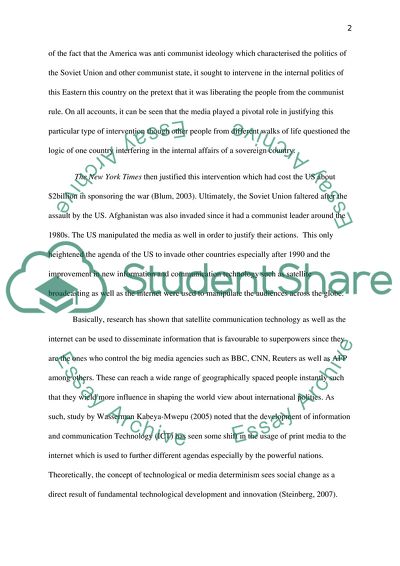Cite this document
(Media in International Politics Essay Example | Topics and Well Written Essays - 1750 words, n.d.)
Media in International Politics Essay Example | Topics and Well Written Essays - 1750 words. https://studentshare.org/media/1759954-media-is-now-the-biggest-player-in-international-politics-discuss
Media in International Politics Essay Example | Topics and Well Written Essays - 1750 words. https://studentshare.org/media/1759954-media-is-now-the-biggest-player-in-international-politics-discuss
(Media in International Politics Essay Example | Topics and Well Written Essays - 1750 Words)
Media in International Politics Essay Example | Topics and Well Written Essays - 1750 Words. https://studentshare.org/media/1759954-media-is-now-the-biggest-player-in-international-politics-discuss.
Media in International Politics Essay Example | Topics and Well Written Essays - 1750 Words. https://studentshare.org/media/1759954-media-is-now-the-biggest-player-in-international-politics-discuss.
“Media in International Politics Essay Example | Topics and Well Written Essays - 1750 Words”. https://studentshare.org/media/1759954-media-is-now-the-biggest-player-in-international-politics-discuss.


